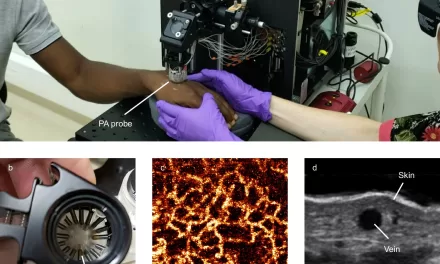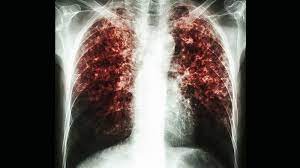A team of researchers from Ruhr University Bochum, Germany, has discovered a plant-based substance that may offer new hope for patients suffering from pulmonary hypertension—a severe condition that can lead to heart failure and death. Led by Professor Daniela Wenzel and Dr. Alexander Seidinger, the researchers tested the efficacy of FR900359, a compound referred to as FR, on pulmonary hypertension. Their findings were published on July 8, 2024, in EMBO Molecular Medicine.
A New Approach to Treatment
Pulmonary hypertension is characterized by high blood pressure in the lungs, causing the blood vessels to contract and the surrounding smooth muscle layer to thicken. This places immense stress on the right side of the heart, which must work harder to pump blood through the lungs. Over time, this can lead to heart enlargement and eventual failure.
The exact causes of pulmonary hypertension are often unclear. Traditional treatments focus on blocking individual receptors or signaling pathways that lead to vasoconstriction (narrowing of the blood vessels). However, these treatments are not very effective since multiple pathways and receptors are involved.
“In our experiments, FR relaxed the vessels quickly and effectively and produced a good therapeutic effect,” said Seidinger, the study’s first author. Unlike conventional treatments, FR targets a different point in the signaling pathway, inhibiting numerous factors that cause vasoconstriction in the lungs simultaneously.
Targeting Gq Proteins
The innovative approach of the Ruhr University team involves targeting Gq proteins, which play a crucial role in the signaling pathways that lead to vasoconstriction. Prior research had shown that FR, derived from the plant Ardisia crenata, affects Gq proteins. The researchers hypothesized that FR could inhibit various vasoconstrictors equally by intervening later in the signal transmission process.
Initial tests on isolated pulmonary vessels from mice demonstrated the effectiveness of FR, resulting in significant vascular relaxation. These results were confirmed in subsequent tests on tissue from pigs and human samples. In experiments with mice suffering from pulmonary hypertension, treatment with FR alleviated symptoms and markedly improved the animals’ health.
“The thickness of the muscle layer around the pulmonary vessels decreased—or didn’t even increase in the first place,” noted Seidinger.
Promising Results with Minor Side Effects
One of the key advantages of FR is its minimal side effects. The researchers observed only a slight drop in blood pressure throughout the body, which could actually be beneficial for treating pulmonary hypertension. Given these promising results, FR could be a valuable candidate for developing new treatments for the disease.
“FR could therefore be a promising drug candidate for the treatment of the disease,” Seidinger concluded. “However, it will certainly take many years of intensive research before it can be used in clinical practice.”
Looking Forward
The discovery of FR900359 as a potential treatment for pulmonary hypertension marks a significant advancement in the search for more effective therapies. While more research is needed to bring this compound to clinical use, the findings offer a beacon of hope for patients and underscore the importance of exploring novel approaches in medical science.
For more information, see the full study by Alexander Seidinger et al., “Pharmacological Gq inhibition induces strong pulmonary vasorelaxation and reverses pulmonary hypertension,” published in EMBO Molecular Medicine (2024). DOI: 10.1038/s44321-024-00096-0.












